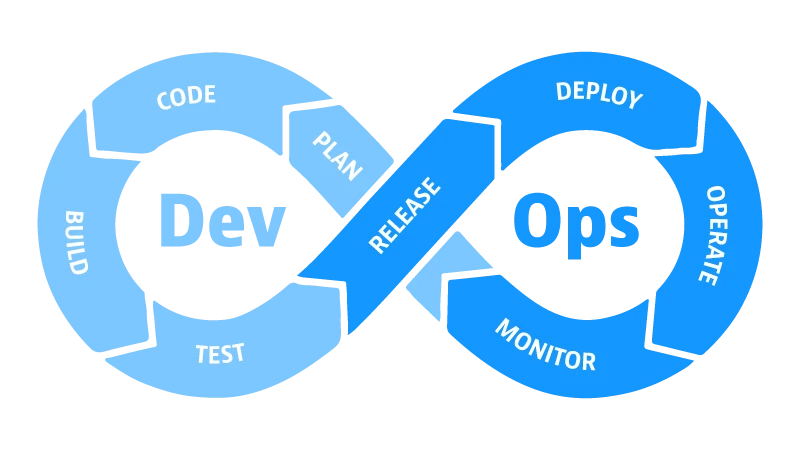A company may choose to implement a DevOps transformation in order to improve the speed and reliability of software delivery, increase collaboration and communication between development and operations teams, and ultimately drive business growth.
DevOps practices can help to automate the software delivery process, enabling companies to deliver software updates and new features more quickly and with fewer errors. Additionally, by breaking down silos between development and operations teams, DevOps can help to improve collaboration and communication, leading to more efficient problem-solving and faster resolution of issues. Henceforth, organizations can respond more quickly to changing customer demands, compete more effectively in the marketplace, and drive innovation. The DevOps transformation practices also include practices such as continuous integration, continuous delivery, infrastructure as code, and monitoring and observability.
Difference Between Non-DevOps Organization And DevOps Organization
DevOps promotes the use of a set of practices and tools that aims to accelerate software delivery and increase the reliability, stability, and security of the systems being developed and maintained. In contrast, a non-DevOps organization may not have a formalized approach to these goals and may have siloed teams with limited collaboration and communication between development and operations. There are a number of key differences between non-DevOps and DevOps organizations. Some of these include:
- Cultural: DevOps organizations tend to have a culture of collaboration, experimentation, and constant improvement, while non-DevOps organizations may have a more siloed culture where development and operations teams have separate goals and work independently of each other.
- Tools and automation: DevOps organizations often make heavy use of automation tools and infrastructure-as-code to streamline software delivery and improve reliability and security. Non-DevOps organizations may not have the same level of tooling and automation in place.
- Feedback loops: DevOps organizations tend to have shorter and more frequent feedback loops, which allows for quicker identification and resolution of problems. Non-DevOps organizations may have longer feedback loops and may be less agile in responding to issues.
- Metrics and monitoring: DevOps organizations often use a wide range of metrics and monitoring to track the performance and health of their systems. This allows them to quickly identify and resolve issues, and also to make data-driven decisions about future development and operations.
How To Approach DevOps Transformation For Your Company?
There is no one-size-fits-all approach to implementing a DevOps transformation within an organization, as the specific steps and processes that are required can vary widely depending on the organization's culture, size, and existing infrastructure. However, here are some general steps that can be taken to begin a DevOps transformation:
- Identify the key stakeholders in the organization and assemble a cross-functional team that includes representatives from development, operations, and other relevant teams.
- Establish a clear vision and goals for the DevOps transformation and communicate this vision to all stakeholders.
- Assess the current state of the organization's infrastructure and processes, including identifying any bottlenecks or areas where automation could improve efficiency.
- Implement automation tools and processes, such as continuous integration and continuous delivery, to improve the speed and reliability of software delivery.
- Introduce a culture of collaboration and shared responsibility between development and operations teams to encourage more efficient and effective communication.
- Continuously monitor and measure the progress of the DevOps transformation, and make adjustments as needed to ensure that goals are being met.
- Train and empower teams for new tools, processes, and technologies that were introduced during the transformation.
- Adopt a flexible and adaptive approach to changes through continuous improvement.
It's important to note that DevOps is not just a set of tools, but a culture and set of practices that help development and operations teams work together more effectively. As such, a successful DevOps transformation will require changes to both the organization's processes and its culture.
